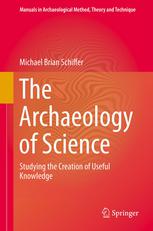

Most ebook files are in PDF format, so you can easily read them using various software such as Foxit Reader or directly on the Google Chrome browser.
Some ebook files are released by publishers in other formats such as .awz, .mobi, .epub, .fb2, etc. You may need to install specific software to read these formats on mobile/PC, such as Calibre.
Please read the tutorial at this link: https://ebookbell.com/faq
We offer FREE conversion to the popular formats you request; however, this may take some time. Therefore, right after payment, please email us, and we will try to provide the service as quickly as possible.
For some exceptional file formats or broken links (if any), please refrain from opening any disputes. Instead, email us first, and we will try to assist within a maximum of 6 hours.
EbookBell Team

5.0
30 reviewsThis manual pulls together—and illustrates with interesting case studies—the variety of specialized and generalized archaeological research strategies that yield new insights into science. Throughout the book there are templates, consisting of questions, to help readers visualize and design their own projects. The manual seeks to be as general as possible, applicable to any society, and so science is defined as the creation of useful knowledge—the kinds of knowledge that enable people to make predictions. The chapters in Part I discuss the scope of the archaeology of science and furnish a conceptual foundation for the remainder of the book. Next, Part II presents several specialized, but widely practiced, research strategies that contribute to the archaeology of science. In order to thoroughly ground the manual in real-life applications, Part III presents lengthy case studies that feature the use of historical and archaeological evidence in the study of scientific activities.